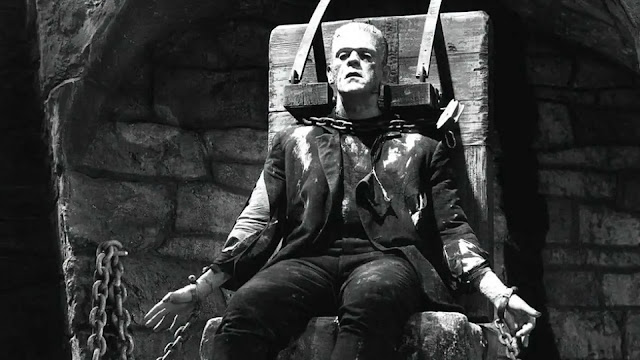Last summer we all in 5scB read Frankenstein by Mary Shelley and then we discussed it with our English teacher once we were back from our summer holidays. It was an interesting and thought-provoking read. Here are some of our reflections.
Mary Shelley’s Frankenstein gives us several important point to reflect on, all still very relevant. One of the main ideas developed in the book is how society creates its own monsters. While reading the book by myself (and before analysing it with my class) I underlined some sentences that contain this point and reveal how the monster was “pushed” into committing such horrible actions. Put it this way, it may seem like a justification for what the creature did to Victor’s loving ones. Actually, what I realised is the power that people and society have on shaping an individual’s mind and behaviours, especially if it’s a child we’re referring to.
« […] I am an outcast in the world for ever»: the monster surely wasn’t born an outcast, a rejection of society, but he sure was born aesthetically different from human beings.
While discussing the
novel, we came to associate the monster to a child, as they’re both innocent
and pure. The only difference is that the monster had to learn to basically
grow by himself, and a child has (or is supposed to have) parents guiding him.
The only guide the
monster has is society, and the ones he encounters weren’t so caring and loving:
people only judged his appearance and, therefore, mistreated him.
« Am I to be thought the only criminal, when
all humankind sinned against me?»:Victor’s abandonment, people’s evil prejudices and behaviours, all of
that lead to the creation of the real monster we know.
These Rousseaunean
reflections makes us notices how our behaviour can be the result of the
environment surrounding us.
According to psychiatrist
Sigmund Freud, we are all born with two basic drives: Eros, the impulse of
love, and Thanatos, the impulse of hate, violence and destruction. Neither
should prevail because we are supposed to know how to control them.
At first, the monster
tries to show his love, he tries to make friends and even to help other human
beings. But no one wants to be his friend, no one wants to be helped by such a
horrible creature or shows him the love he deserves.
That’s when Thanatos prevails: he « declared everlasting war against all human beings» seeking for revenge.
Frankenstein is one of the most famous horror and science fiction books in our culture, even today it’s read by many and lots of film adaptations continue to be made.
I really appreciated it because in this work we find both the typical
shiver of a gothic story, full of plot twists that keeps us glued to the book,
with its different points of views, and a story that is relevant still nowadays.
Its modernity is due to the themes that it deals with. One of them is the role that society has in people’s lives, in our case in the life of Frankenstein's creature, who is not ordinarily human, which, in my opinion, isn’t a coincidence, because if Shelley had chosen an ordinary person, the message wouldn’t have been conveyed as effectively.
The character of the monster is the result of the behaviour of the others
towards him, starting with Victor, his creator, who ran away after seeing the monstrous shape of his ambition. Since that moment the creature felt different and
started acting in an evil way.
So this work is a literary classic because, beyond time, it is able to demonstrate how the cruelty of society, or also of a single person, can effect other's people life.
3. Matteo Tozzi
The monster is not the result of magic or the product of dark forces but the result of scientific research. It was born in a laboratory thanks to the scientist Victor Frankenstein. He creates a being with conscience, capable of feeling extreme feelings such as fear, hate, and the desire for revenge.
The tragic course of events of the story reflects today’s society and can be a teaching for us. In fact, what leads the creature to perform horrible actions is the abandonment by his creator. The evil of the creature is the reaction to a society that doesn’t have the maturity to accept him and that marginalizes the different.
The ferocious revenge of the creature that kills the brother, the best friend and the wife of his creator is a reaction of a marginalized man. In short, like all of us, the creature is a human being with all his weaknesses and imperfections.
We can link the figure of the creature with the vision of the natural man of Rousseau; according to him a man is born good and then the society transforms him corrupting his innocence. Maybe if the creature had received the education and love that every human being needs, he wouldn’t have done horrible things and he would have been able to fit into society.

_Creature.jpg)


No comments:
Post a Comment